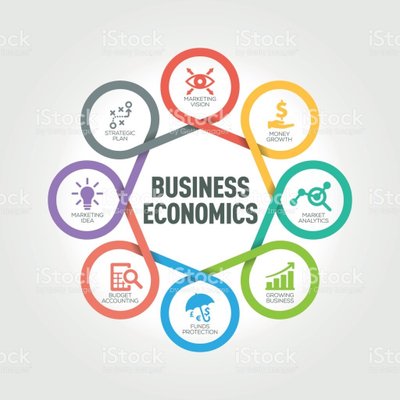Business and Economics Emerging Possibilities and Challenges in Contemporary Times
Wiki Article
Business and Business Economics 101: Crucial Expertise for Aspiring Leaders
In today's swiftly advancing organization landscape, aiming leaders need to cultivate an extensive understanding of fundamental critical structures and financial concepts. Mastering ideas such as supply and need, market structures, and competition is not simply academic; these components are critical in forming effective decision-making and promoting advancement. Economic literacy-- particularly in cash circulation administration-- serves as a foundation for lasting development. As we discover these vital topics, it becomes evident that the junction of company acumen and financial understanding is vital for future leaders to not just make it through but flourish in their endeavors. What effects does this have for tactical management?Comprehending Supply and Demand
Supply and need are fundamental ideas that constantly underpin the mechanics of any kind of market economy. The relationship in between these two pressures determines the cost of solutions and goods along with their accessibility out there. Supply refers to the amount of a product that producers are willing and able to cost various price degrees, while need mirrors the quantity that customers agree and able to purchase.When need enhances without a corresponding rise in supply, prices often tend to increase, signaling producers to enhance output. Alternatively, if supply overtakes demand, costs might drop, prompting manufacturers to lower output. This dynamic interplay helps to achieve market balance, where the quantity supplied matches the amount demanded at a specific cost point.

Exploring Market Frameworks
Market frameworks specify the competitive atmosphere in which services operate, considerably influencing their rates techniques, output degrees, and overall profitability. Recognizing these structures is essential for striving leaders, as they form service decisions and market characteristics.There are four main types of market structures: best competition, monopolistic competitors, oligopoly, and monopoly. In a perfectly open market, numerous companies use the same items, resulting in price-taking habits. Monopolistic competitors functions numerous companies selling separated items, permitting some prices power. Oligopolies are composed of a couple of leading companies that can affect market rates, typically causing calculated interactions and competitive habits. Monopolies exist when a single company controls the market, resulting in the highest possible level of prices power and potential market inefficiencies.
Each market structure offers distinct challenges and opportunities for businesses. Leaders need to recognize these nuances to successfully position their companies, establish affordable methods, and react to market adjustments. By understanding the effects of numerous market frameworks, aiming leaders can make informed choices that drive their businesses toward lasting success and growth in an ever-evolving economic landscape.
Financial Concepts for Leaders
Efficient management in service requires a strong understanding of financial principles, as they underpin calculated decision-making and resource allocation. Leaders have to realize essential concepts such as capital management, success analysis, and economic forecasting. These components are crucial in analyzing a company's financial health and leading its future direction.Capital management is particularly essential; it guarantees that the company preserves adequate liquidity to satisfy its commitments while pursuing development possibilities. Evaluating profitability enables leaders to recognize which solutions or items yield the highest returns, making it possible for educated investment decisions. Additionally, monetary forecasting helps expect future profits and expenses, helping with even more accurate budgeting and source allowance.
Furthermore, recognizing financial statements-- such as annual report, earnings statements, and capital statements-- equips leaders with the understandings essential to make educated choices. This expertise fosters accountability and transparency, improving stakeholder count on.
In today's dynamic organization environment, leaders need to be adept at interpreting financial data to respond swiftly to market modifications. Ultimately, a solid understanding of financial concepts empowers leaders to drive their companies towards lasting success while efficiently taking care of resources and risks.
The Duty of Competition
Comprehending the role of competitors is crucial for any business intending to thrive in a saturated market. Competitors drives development and effectiveness, engaging services to boost their items and solutions continually.Additionally, competitors can cause far better navigate here pricing approaches. As companies compete for market share, they are incentivized to provide competitive prices, benefiting customers while tough businesses to take care of costs properly. This dynamic fosters a culture of consistent improvement, pressing organizations to improve operations and enhance value propositions.
Furthermore, competition can stimulate market development by encouraging new entrants. New services usually introduce fresh concepts and strategies, even more improving the overall market landscape. Companies must also be vigilant; too much competitors can lead to market saturation, minimizing profitability for all players entailed.
Inevitably, understanding and navigating competitors is crucial for leaders. By identifying its diverse duty, aiming leaders can make informed choices that place their companies for long-term success in an ever-evolving industry.
Strategic Decision-Making
In the realm of service, tactical decision-making is fundamental to achieving lasting objectives and adjusting to altering conditions. This process involves assessing various options and selecting the most effective training course of activity that straightens with the company's vision and objectives. Efficient strategic decision-making requires a detailed understanding of both exterior and inner settings, including market trends, competitive characteristics, and business capacities.
Key components of calculated decision-making consist of information evaluation, stakeholder engagement, and danger evaluation. Leaders have to collect appropriate info, analyze it seriously, and forecast potential end results. Engaging stakeholders promotes partnership and makes sure that varied perspectives are taken into consideration, improving the top quality of decisions made - Business and Economics. In addition, evaluating threats related to each alternative makes it possible for leaders to establish and expect difficulties contingency strategies.
Eventually, effective critical decision-making empowers companies to browse complexities, utilize possibilities, and react proactively to dangers. By growing a society that values educated decision-making, companies position themselves to innovate and keep an one-upmanship in an ever-evolving company landscape. Ambitious leaders have to sharpen these abilities, as their capacity to make audio calculated decisions will dramatically influence their companies' success and sustainability.

Conclusion
Comprehending the duty of competition more boosts critical thinking, making it possible for leaders to navigate intricate market characteristics. Ultimately, this foundational understanding gears up future leaders to innovate and line up organizational techniques with advancing market problems, leading the method for continual success and profitability.Recognizing these principles is crucial for aspiring service leaders, as they develop the foundation for reliable decision-making in rates, resource allowance, and market method. Understanding supply and need gears up leaders to navigate the complexities of market variations and customer actions.
Monopolies exist when a solitary company manages the market, resulting in the greatest degree of pricing power and possible market inadequacies.
By understanding the implications of numerous market frameworks, aspiring leaders can make enlightened decisions that drive their organizations towards sustainable success and development in an ever-evolving economic landscape.
Comprehending the role of competitors click now additional improves tactical more info here thinking, allowing leaders to navigate complex market characteristics.
Report this wiki page